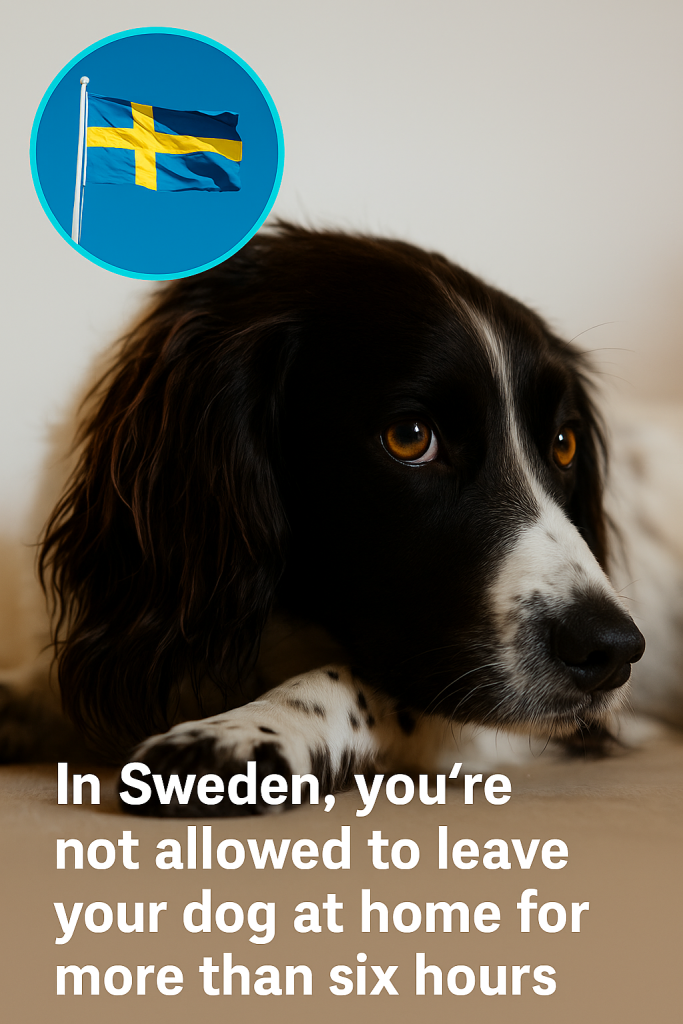Sweden has long been recognized for its progressive stance on animal welfare, and in 2024, the country has reinforced its commitment with new regulations that affect dog owners across the nation. According to the updated animal welfare laws, dogs cannot be left alone in the home for more than six consecutive hours. This regulation underscores Sweden’s holistic approach to ensuring pets receive appropriate care, attention, and exercise throughout the day.
The Roots of the Regulation
Swedish animal welfare policies are globally renowned for their rigor and empathy. Building on decades of legal frameworks aimed at preventing neglect and promoting healthy living conditions for pets, the new six-hour rule is designed to combat the loneliness, boredom, and anxiety that can result from extended periods alone. Under the updated legislation, owners must actively ensure that their dogs’ emotional and physical needs are met—in particular, by providing regular interaction and sufficient physical activity.
“It’s not just about keeping dogs fed and sheltered,” explains a spokesperson familiar with the law. “Owners must provide companionship and stimulation, as these are equally vital to a dog’s well-being.”
What the Law Means for Dog Owners
This six-hour limit means significant adjustments for many dog owners, especially those with demanding work schedules or lifestyles that traditionally allowed longer periods away from home. Owners are encouraged to seek solutions such as dog walking services, pet daycare, or arranging family and friends to provide company during absences longer than six hours.
Additionally, the Swedish regulations emphasize exercise as a critical component of pet care. Dogs must be given enough daily activity tailored to their breed, age, and size—factors that directly influence the dog’s health and happiness. The law seeks to ensure no dog is left in a state of physical or mental neglect, recognizing exercise and social interaction as essential needs.
Enforcement and Consequences
A failure to comply with the regulations can lead to fines or other penalties. Animal welfare inspectors are empowered to investigate reports of neglect and ensure that dogs receive adequate care. The goal, however, is primarily educational and preventative: to promote responsible pet ownership and enhance dogs’ quality of life rather than strictly to punish.
International Impact and Public Reception
The Swedish model is drawing international attention, resonating with animal welfare advocates worldwide who view the legislation as a powerful example of prioritizing animal rights in everyday policy. On social media, many applauded the law’s practical focus, emphasizing that pets—especially dogs—are social creatures requiring daily interaction and cannot simply be left alone like inanimate belongings.
Critics, however, warn that the law may pose challenges for those with inflexible work commitments or limited access to dog care services, urging the state to provide more comprehensive support for pet owners. Nevertheless, the overarching sentiment in Sweden is one of support for the measure, recognizing it as a positive step toward eliminating animal neglect.
Final Thoughts
Sweden’s stringent animal welfare laws, particularly the limitation on leaving dogs alone for more than six hours, reflect a deep societal respect for animal well-being. By legally mandating sufficient care, attention, and exercise, Sweden sets a high standard for pet care, encouraging owners to meet their dogs’ emotional and physical needs responsibly. As pet ownership continues to grow worldwide, such forward-thinking regulations may inspire other nations to adopt similar laws, prioritizing the happiness and health of animals everywhere.



